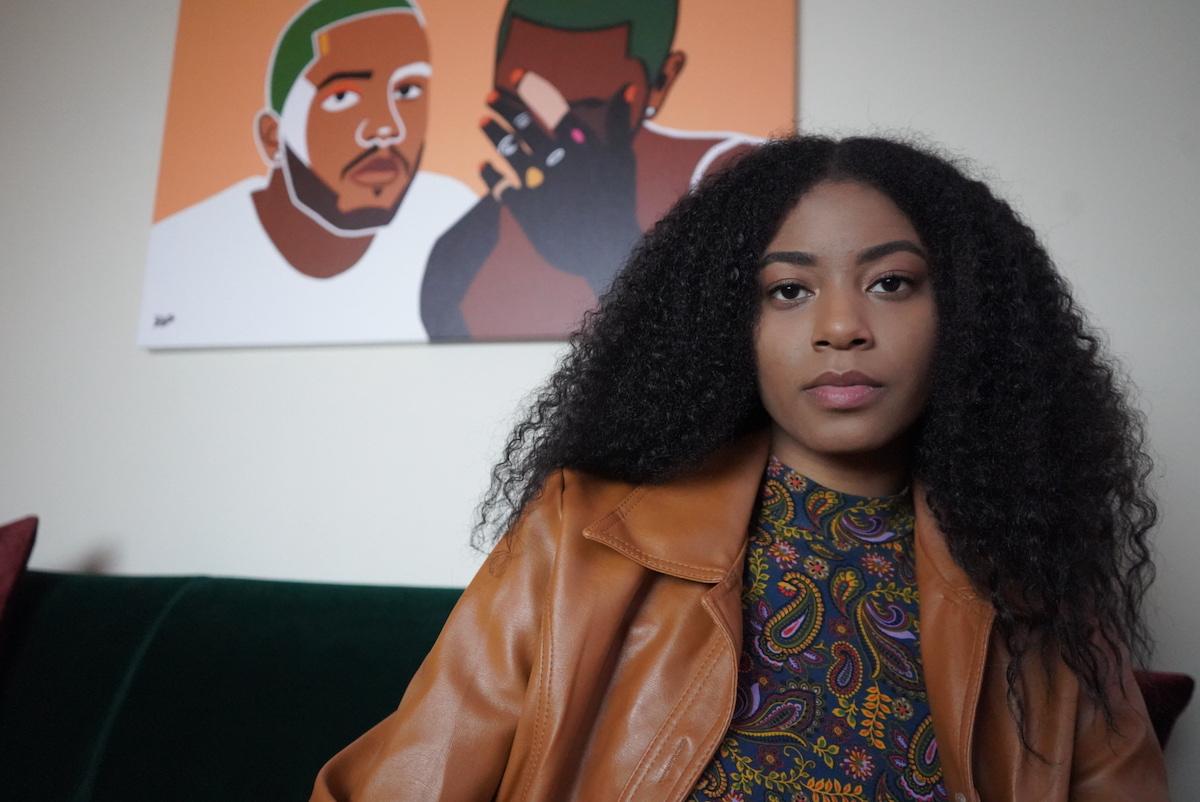How Nonprofit Generation Green Is Fighting for Environmental Liberation
Published Feb. 24 2021, 3:57 p.m. ET

The Generation Green team.
Have you ever heard of environmental liberation? A new organization called Generation Green, founded by a group of Black Gen Z women, wants to lead the movement for environmental liberation — and make sure that anyone who says they care about Black liberation or protecting the environment is familiar with (and dedicates themselves to achieving) it.
To learn more about Generation Green, environmental liberation, and why antiracism is essential for achieving climate justice, we recently caught up with Generation Green founder Destiny Hodges, a junior interdisciplinary communications student at Howard University.
Generation Green was founded to combat racism in environmental spaces.

Destiny Hodges, founder of Generation Green.
During the summer of 2019, just before her sophomore year at Howard, Hodges interned at the Sierra Club. “It was beautiful because I was on a team that was almost all Black,” Hodges recalls in a recent video chat with Green Matters. “But at the same time, I was just really noticing how Black people are not necessarily safe in the mainstream climate and environmental movement. It’s no secret that it’s very whitewashed, very white dominated.”
Hodges recalls some of her older Black coworkers telling endless stories about being forced into “doing things that weren’t in their job description, constantly battling microaggressions, just fighting to exist ... consistently defending their existence, their Blackness.”
“It was just uncomfortable, to be quite honest … And I didn’t want to be in a space like that, I didn’t want any other Black person, whether young or old, new to the work, or experienced in the work, to go through that,” Hodges recalls. That experience got her wheels turning, and she came up with the idea for Generation Green soon after.
“I started thinking about starting a nonprofit specifically that was a safe space for Black people, primarily Black youth, to really explore this work, explore what environment means to them, and to just be in a safe space,” she says. “I think that’s so hard to find in this movement, in this work, especially as a young person… and even in the youth climate movement, that’s not a safe space for Black youth … So I developed Generation Green as that safe space.”
After getting 501c3 status for Generation Green in January 2020, Hodges began building the organization along with Howard University classmates and alumni, as well as a few others who she met at the HBCU Climate Change Conference. Planning was put on hold due to the pandemic, but Hodges officially launched Generation Green in August 2020 — and its mission has become to achieve environmental liberation.
What is environmental liberation?
Ayana Albertini-Fleurant, one of Generation Green's co-founders, first coined the term environmental liberation, and the organization's founding team evolved it into a framework and movement. To Hodges, environmental liberation symbolizes the ideas that “environmental justice, climate justice, and Black liberation can only be achieved together, and that Black liberation is liberation for everyone.”
“In order to be a part of the environmental liberation movement, you must be antiracist, even anti-capitalist, and an abolitionist, because these systems can no longer exist [if we want to achieve environmental liberation]. It’s not a question of justice, it’s a question of freedom, of liberation, and what does our future look like?” Hodges explains. “Environmental liberation is something that Generation Green reimagined to capture the early radical political imaginaries of the beginning of the environmental justice movement.”
Generation Green believes achieving environmental liberation is vital.
Achieving environmental liberation — and educating others on what it means — is the goal for Hodges and Generation Green.
“We envision a world where African people are liberated through collective power building and collaborative ideation, [and in] which that work connects a plethora of environmental and social justice movements and issues that strive to reimagine a regenerative and abundant world,” she says. “So hopefully at some point, Generation Green doesn’t even have to exist anymore. I think that’ll take longer than a couple years, but that’s the end goal, that Black people are liberated everywhere and we don’t have to be in these systems of oppression anymore that all conspire for our demise.”
In order to do so, Hodges says Generation Green has four tangible goals:
- To expand its media platform with things like a blog, original films, and documentary series — something like “National Geographic … for Black folks that focuses on an environmental lens”
- To expand its policy platform
- To expand its network and build community
- And to build collective power around the world by organizing throughout the African Diaspora.
Generation Green is different from climate organizations of the past.
Led by a team of young Black women, Generation Green is the opposite of most of the major environmental organizations out there.
“Many organizations, I feel like it’s honestly impossible for them to evolve… just because their foundation is racism and eugenics,” she says, pointing to renowned men known for their contributions to the National Park System. For example, the work of both John Muir, who founded the Sierra Club, and President Theodore Roosevelt, who helped create many national parks, was deeply rooted in racist ideologies.
“Our environmental liberation lens and framework — I’m extremely proud of that. It’s an entirely different outlook, and it really centers Black people and Black liberation and what that means for us,” Hodges says. “We’re not trying to reform systems, we’re trying to dismantle them entirely, and build regenerative systems that are based in a lot of African traditions and principles [such as] communalism, community care… but I’m really proud that we’re able to build out this lens of environmental liberation.”
This article has been updated to reflect the origins of the term environmental liberation.